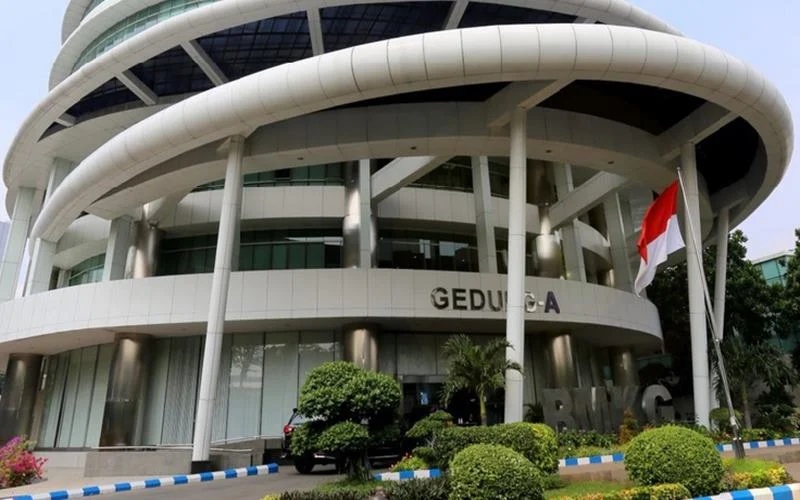In 2025, President Prabowo Subianto issued Presidential Instruction Number 1 Year 2025, which ordered significant budget savings of up to IDR 306 trillion. This directive aimed to enhance the efficiency of expenditures in implementing the state budget (APBN) and regional budgets (APBD) for the fiscal year 2025.
Finance Minister Sri Mulyani Indrawati announced major cuts to the budgets of ministries and institutions, intending to optimize spending and ensure that public funds are more effectively targeted, particularly toward benefiting the community.
The ongoing debate surrounding the budget cuts has generated mixed reactions. Many critics argue that the government’s cost-saving measures disproportionately target middle- and lower-level government institutions, adversely affecting essential public services.
They point out that while critical services like earthquake and tsunami detection, as well as library operations, are facing substantial cutbacks, there has been no reduction in the cost of providing luxury items such as vehicles and other facilities for members of the House of Representatives.
This disparity in budget cuts has fueled public discontent, as many perceive the efficiency measures to be unevenly distributed, with some sectors bearing a heavier burden than others. Despite the government’s stated intentions to focus on community welfare, critics continue to question whether the cuts are being applied equitably across the various branches of government.
Targeted Budget Efficiency Across Ministries and Institutions
The cuts, designed to improve overall fiscal efficiency, spanned various expenditure categories, including ceremonial activities, official travel, seminars, printing, and infrastructure development.
The plan identified 16 specific categories of expenditure that would experience reductions, with varying percentages, ranging from 10% to as much as 90%. However, the cuts explicitly excluded personnel spending and social assistance allocations, meaning essential public service salaries and social programs remained unaffected.
While this policy sought to streamline the government’s financial commitments, the implementation of these cuts led to significant disruptions within several key institutions.
BMKG Faces Severe Budget Cuts: Impact on Earthquake and Tsunami Detection

One of the most severely affected institutions was the Meteorological, Climatological, and Geophysical Agency (BMKG), which saw its budget slashed by 50.35%, from IDR 2.826 trillion to IDR 1.423 trillion. According to the agency, this drastic reduction in funding has had serious implications on its operations, particularly in maintaining its Main Operational Equipment.
With a reduction in maintenance capabilities by up to 71%, BMKG’s ability to accurately monitor and report on critical environmental factors, such as weather conditions, climate dynamics, air quality, and seismic events, has been significantly impaired.
“The accuracy of weather, climate, earthquake, and tsunami information decreases from 90% to 60%, and the speed of tsunami early warning information has gone from three minutes to five minutes or more. Additionally, the reach of earthquake and tsunami information dissemination has decreased by 70%,” stated Muslihhuddin, the Head of BMKG’s Legal, Public Relations, and Cooperation Bureau, in a statement quoted by Antara on February 10, 2025.
The impact of these budget cuts has also extended beyond the immediate scope of BMKG’s operations. The agency’s ability to provide critical services related to food security, energy, water management, and climate disaster resilience has been compromised.
Furthermore, BMKG’s vital role in providing tsunami early warning systems for the Indian Ocean and ASEAN countries is now under threat.
National Library Reduces Operating Hours in Response to Budget Cuts
Another prominent institution affected by the budget cuts is the National Library of Indonesia, which has been forced to adjust its operating hours due to the financial restrictions outlined in the Presidential Instruction. Aminudin Aziz, the Head of the National Library, confirmed that the new operating hours were a direct result of the budget reductions imposed by the government.
“We are of course very forced to adjust the operational service hours at the National Library as a result of the efficiency or budget reduction of the National Library,” Aminudin stated in an interview with Kompas.com on February 7, 2025.
Initially, the National Library announced a reduction in service hours, with the library set to close earlier than usual. However, this decision sparked protests from the public, leading to the library issuing a correction.
Lihat postingan ini di Instagram
Sebuah kiriman dibagikan oleh Perpustakaan Nasional RI (@perpusnas.go.id)
In a post on its official Instagram account (@perpusnas.go.id), Perpusnas stated, “We hereby inform you that this morning’s announcement regarding the plan to change service times at the National Library is corrected and declared invalid.” The library reaffirmed that the updated operating hours would be as follows:
- Monday to Friday: 08:00 – 19:00 WIB
- Saturday and Sunday: 09:00 – 16:00 WIB
Cover: Photo by Tom Fisk/Pexels





































